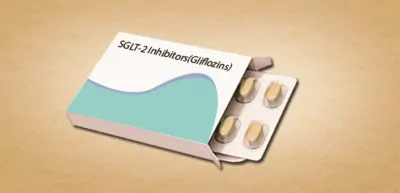
Drug Side Effects
Acarbose (Alpha-Glucosidase Inhibitors) Side Effects
Nov 24, 2016Introduction
Acarbose is the generic name of drugs like Precose, that are prescribed to help type 2 diabetics control their blood sugar levels. Acarbose, or Alpha-Glucosidase Inhibitors act by blocking enzymes that digest carbohydrates in the small intestine. Carbohydrates are broken down into sugars in our body. When Alpha-Glucosidase Inhibitors act, the rate at which carbohydrates are broken down into sugar is reduced. As a result, the speed at which sugar enters the bloodstream slows down. This leads to lower blood sugar levels. Diabetics using this drug have to deal with acarbose side effects. These include digestive troubles due to acarbose’s mechanism of action.
Mechanism of Action
Acarbose works by slowing down two enzymes whose job is to digest complex carbs into simple sugars. This inhibition is temporary and while these enzymes still continue digest carbs, the rate at which they do so is greatly reduced.
How Should Acarbose be Used?
Acarbose is a tablet, usually taken three times a day. It is very important to take each dose with the first bite of each main meal. Follow the directions on your prescription label carefully. If you do not understand something, ask your healthcare practitioner or pharmacist. Take acarbose exactly as directed. Do not take more or less of it or take it more often than prescribed. Continue to take acarbose even if you feel well. Do not stop taking acarbose without talking to your healthcare practitioner.
Most Prescribed Brand Names of Acarbose Include
Glyset, Precose Euglitol, Mignar, Elitox, Glucarb, Discarb and Disorb
Side Effects That Could Happen as Soon as You Start Taking Acarbose
Digestive Issues
The most common Acarbose side effects are flatulence, feeling bloated, abdominal pains and diarrhea. These drugs trap complex carbohydrates in the intestine, preventing their rapid breakdown. This makes food stay longer in the digestive system. Bacteria ferment this food and produce gas as a byproduct. This leads to flatulence and bloating.
What Can You Do?
Your doctor can handle these adverse effects by starting you off with a smaller dose and increasing the dosage gradually.
Should You Be Using Acarbose for a Long Term?
While the conventional Acarbose dosage is well tolerated, the short-term side effects can cause of embarrassment and discomfort. Acarbose has not been studied for nutrient depletion with longer term use.
Just remember: studies show that if you eat the right diet, you can make a substantial change to your blood sugar levels. Intermittent fasting, beginning with a simple 12-hour fast between dinner and breakfast can also improve insulin sensitivity greatly. Moderate exercise can help you not just lose weight, but also handle blood sugars much better.
Taking Acarbose: What Special Precautions Should I Follow?
Before taking acarbose,
Inform your doctor and pharmacist if you are allergic to acarbose or any other drugs.
Tell your doctor about other prescription and nonprescription medications you are taking, especially,
- Other medications for diabetes
- Digoxin (Lanoxin)
- Diuretics (‘water pills’)
- Estrogens
- Isoniazid
- Medications for high blood pressure or colds
- Oral contraceptives
- Pancreatic enzymes
- Phenytoin (Dilantin)
- Steroids
- Thyroid medications
- Vitamins
Inform your doctor if you have or have ever had ketoacidosis, cirrhosis, or intestinal diseases such as inflammatory bowel disease or bowel obstruction.
Inform your doctor if you are pregnant, plan to become pregnant, or are breastfeeding. If you become pregnant while taking acarbose, call your doctor.
What Should I Do if I Forget a Dose of Acarbose?
Take the missed dose as soon as you remember it. If you plan to have a snack soon, take a dose along with the snack. If it is almost time for the next dose, skip the missed dose and continue with your regular dosing schedule. Do not take a double dose to make up for a missed one.
What Should I Know About Storage and Disposal of Acarbose?
Store the medication at 20° to 25°C (68° to 77°F). Protect from moisture. Keep container tightly closed. Keep the medication away from children and pets. Do not give this medication to anyone just because they have symptoms similar to you. They might be suffering from a completely unrelated disease or disorder. Take unwanted and expired medication to your pharmacist who will dispose them for you.
Dietary Considerations, While Taking Acarbose
Taking anti diabetic medication alone can never be the only way to combat diabetes. Research is changing the way doctors look at the right diet for diabetics, so be sure you are in eating right according to these principles.
If you’re going to drink alcohol, know your limits as a diabetic. There is a lot of misinformation on the net about what diabetics should and should not do, so please be aware of these.
Drug Interactions: Acarbose
- Certain drugs can increase your blood sugar levels and you should be cautious while taking these along with drugs like acarbose that are used to lower blood sugar. Such drugs are thiazide diuretics and loop diuretics, corticosteroids, phenothiazines, thyroid preparations, estrogens (conjugated), progestins, hormonal contraceptives, phenytoin, niacin, sympathomimetics, calcium channel blockers, and isoniazid.
- If you are taking intestinal adsorbents, including activated charcoal and digestive enzyme preparations (amylase, pancreatin) to treat digestive problems, be aware that they will tend to decrease the efficiency of acarbose.
- Acarbose when taken along with sulfonylureas will exert a greater effect in reducing blood sugar levels.
- Acarbse may decrease absorption of digoxin that you might be taking for your cardiac problems. You may require to adjust your dosage in consultation with your healthcare practitioner.
Who Should Not Take Acarbose?
Do not take acarbose if:
- You are allergic (hypersensitive) to acarbose.
- You are allergic to any of the other ingredients in the tablets.
- You are pregnant, likely to become pregnant or are breastfeeding.
- You have an inflamed bowel or have a gastric ulcer (conditions like ulcerative colitis or Crohn’s disease).
- You have, or are susceptible to, an obstruction in your intestines (gut).
- You cannot digest food properly because of a problem with your gut.
- You have a large hernia or any other condition that produces large amounts of gas that may worsen your condition.
- You have liver disease.
- You have severe kidney disease.
What Are The Ingredients in Acarbose?
The active substance is acarbose (each tablet contains 50 or 100mg of acarbose).The other ingredients are microcrystalline cellulose, maize starch, croscarmellose sodium, colloidal silica anhydrous and magnesium stearate.
Diabetes is reversible. That’s the message that M.Ds are giving us today.
Dietary supplements that have been studied to help with controlling blood sugar could assist you in reducing the burden of your prescription drugs. Always work with your medical practitioner when using dietary supplements to help with your diabetes. Several supplements can bring down blood sugars rapidly, so you must be extra careful when using them alongside prescription medications




